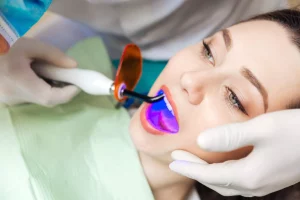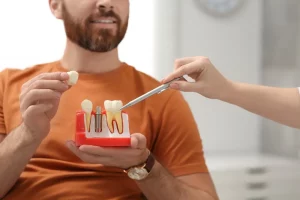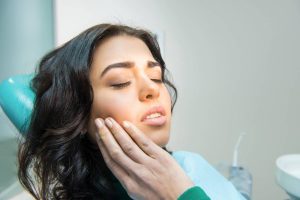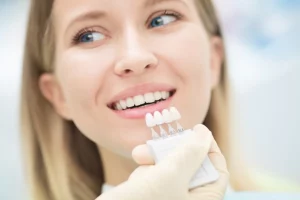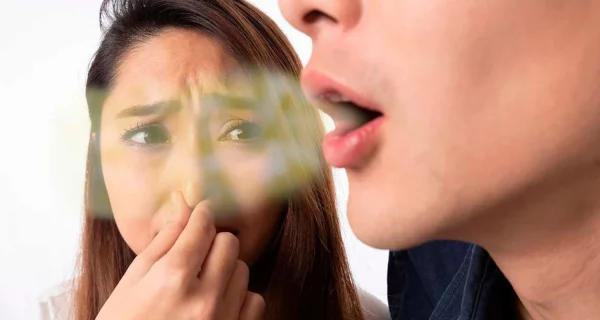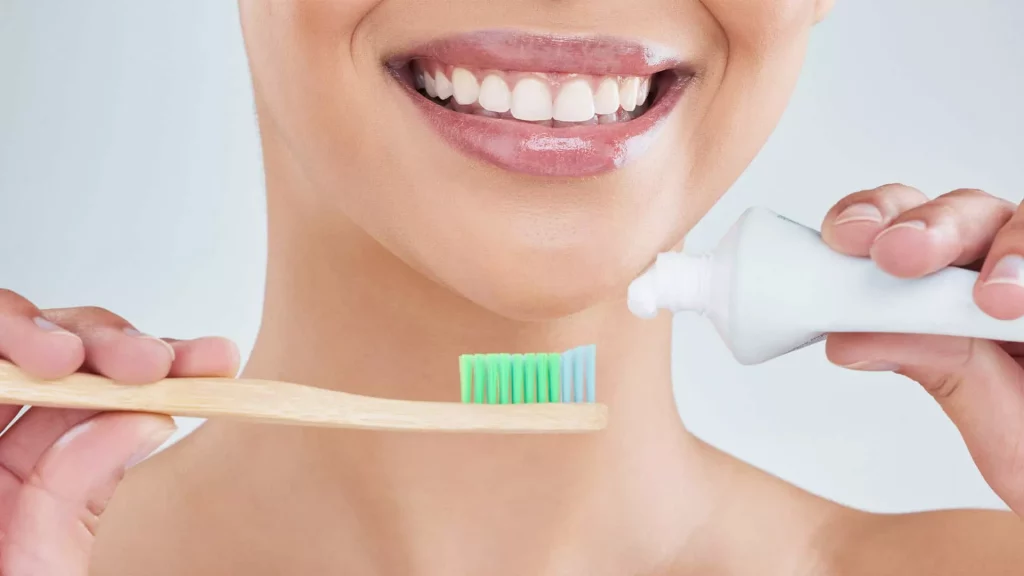Last Updated on: 25th November 2025, 05:56 am
White wine can be bad for your teeth if consumed frequently without proper care given that, as its acidity can weaken enamel, causing sensitivity, cavities, and future stains. With good habits like rinsing, waiting before brushing, and using enamel-strengthening products, you can still enjoy it safely.
In fact, in many cultures, it’s common to enjoy a glass of wine with dinner.
White wine, in particular, is refreshing, aromatic, and versatile at the dinner table. But when it comes to your oral health, its effects may not be so pleasant.
In this article, we’ll explore how white wine can affect your teeth and share simple habits to reduce the risks, so you can keep enjoying it without harming your smile.
What’s in white wine that affects your teeth?

White wine is refreshing, aromatic, and pairs well with many meals. But it also contains ingredients that can be tough on your teeth.
The main acids in white wine are:
- tartaric acid
- malic acid
- citric acid
These acids lower the pH in the mouth, making it more acidic. When the pH drops below about 5.5, tooth enamel begins to soften. If this happens often, it enamel can wear away permanently.
How does enamel erosion affect your teeth?
When enamel gets weaker, you may notice:
- more sensitivity to cold, hot, or sweet foods
- higher risk of cavities because bacteria can attack more easily
- greater chance of staining later from coffee, tea, or red wine
Does white wine stain teeth?
White wine does not have the pigments that cause direct stains like red wine does. However, it is often more acidic, and this acidity will can erode enamel. Once enamel is thinner and more porous, teeth can stain more easily from other foods and drinks.
White wine vs. red wine: which is worse for your teeth?
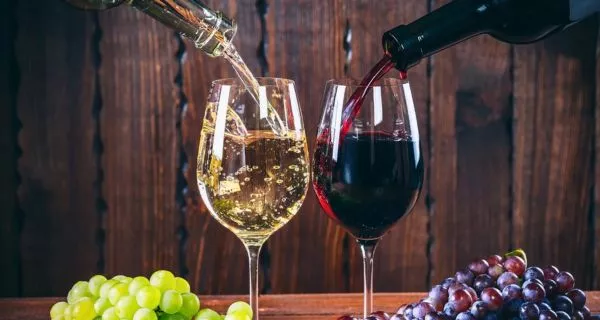
Many people think red wine is always worse because it stains teeth. While that’s true for color, the real story is more complex.
If we also include sparkling wines like Champagne or Prosecco, the bubbles plus extra acidity can increase the risk for enamel damage even more.
Feature | White wine | Red wine | Sparkling wine |
Acidity | High acidity. Erodes enamel faster | Moderate acidity. Slower erosion | Very high acidity |
Staining | Rare at first, but can cause later stains | High. Stains on contact | No big stains, but enamel becomes very vulnerable |
Tannis | Low. Less drying | High. It can dry the mouth | Low,. Similar to white wine |
Sugar Content | Can be higher in some wines | Usually lower, but varies | Many have added sugar, increasing cavity risk |
Why are sparkling wines even more aggressive?
If you drink sparkling white wine, your enamel faces an extra challenge.
- Higher acidity: Carbon dioxide (CO₂) makes the drink even more acidic.
- Longer contact time: The bubbles keep the drink moving around your mouth, increasing exposure.
- Added sugar: Many sparkling wines have residual sugar, which increases the risk of cavities.
This combination is double trouble, because acid weakens the enamel while, and sugar feeds the bacteria that cause decay.
In summary:
- Red wine is more aggressive in its appearance (staining).
- White wine and sparkling wines will can erode enamel faster, which affects both the health and look of your teeth in the long term.
Can white wine be part of a healthy lifestyle?
Yes, white wine can be part of a healthy lifestyle if you drink it in moderation and take care of your teeth afterward. While it offers certain health benefits, such as antioxidants and potential cardiovascular support, it’s essential to be mindful of its impact on dental health.
What are the general health benefits of white wine?
- Antioxidants: White wine contains compounds that help combat cell damage caused by free radicals.
- Heart Health: Some studies suggest that moderate consumption may be linked to better cardiovascular health.
- Relaxation: Occasional consumption can contribute to social enjoyment and stress reduction.
Does white wine have any dental benefits?
In small amounts accompanied by and with good oral hygiene, white wine can be part of a balanced lifestyle. Some natural compounds in it may even help slow down the growth of certain bacteria in the mouth.
When does white wine become a problem for your teeth?
The risk increases with frequent or long-term drinking, especially if you don’t take preventive steps like rinsing your mouth with water after drinking or waiting before brushing your teeth.
How can I protect my teeth when drinking white wine?

If you drink white wine often and want to protect your teeth, following good habits can reduce its harmful effects on your mouth.
What should I do before drinking wine?
- Brush before drinking: Use a toothpaste with fluoride or hydroxyapatite (like Boka Ela Mint or Sensodyne Pronamel) to strengthen your enamel and remove plaque.
- Clean between teeth: Use floss or floss picks (like Cocofloss or GUM Floss Picks) to remove food and bacteria from hard-to-reach areas.
What habits help while drinking wine?
- Eat protective foods: Snack on cheese, nuts, or raw vegetables like carrots and celery to help neutralize acids and boost saliva.
- Drink water alongside wine: Sip water regularly to rinse acids and sugars from your mouth and keep saliva flowing.
- Limit sipping time: Avoid sipping wine slowly over many hours. Try to finish your glass in a shorter time to reduce acid exposure.
- Avoid swishing wine in your mouth: This keeps acid from lingering longer on your teeth.
What should I do after drinking wine?
- Rinse your mouth with water: This helps wash away remaining acids and sugars and stimulates saliva production.
- Wait before brushing: Do NOT brush your teeth immediately. Wait at least 30–60 minutes to let your enamel harden again.
- Chew sugar-free gum: If you want, chew gum to increase saliva and naturally protect your enamel.
How do I keep my teeth healthy long-term?
- Use mouthwash daily: Use fluoride rinses like ACT Anticavity Fluoride Rinse or CariFree CTx3 to strengthen enamel and balance your mouth’s pH.
- Visit your dentist twice a year: Regular check-ups help detect early enamel erosion and allow for protective treatments like fluoride varnish.
You don’t have to avoid white wine completely. You can enjoy an occasional glass by taking good care of your teeth before, during, and after drinking. Just remember to be careful and drink in moderation.
Conclusion
If you love white wine or like to drink it sometimes, taking care of your teeth is very important.
Follow simple habits to protect your smile, such as:
- rinsing your mouth with water after drinking
- waiting before brushing your teeth
- eating foods that help protect your enamel
- using toothpaste and mouthwash that strengthen enamel
Be consistent with your dental care routine. If you notice signs like tooth discoloration or increased sensitivity, visit your dentist for advice and treatment.
Frequently Asked Questions (FAQ)
White wine is acidic, which can soften and wear down tooth enamel over time. If you drink it often and don’t take good care of your teeth, it will increase the risk of sensitivity, cavities, and staining.
Not necessarily. You can enjoy white wine if you drink in moderation and follow good oral care habits like rinsing, waiting to brush, and visiting the dentist regularly.
The acid lowers the pH in your mouth, softening enamel temporarily. Over time, repeated acid exposure can cause enamel erosion, making teeth sensitive and prone to cavities.
Watch for increased tooth sensitivity, visible enamel wear, rough tooth surfaces, or discoloration. If you notice any of these effects, see your dentist.
Remineralization is the natural process where minerals like fluoride and calcium rebuild weakened enamel. Using the right toothpaste and recommended rinses can help this process after acid exposure.
Voice Search Snippets (Q&A)
References
1. Jennins, K. A. (2017, February 17). Red Wine vs White Wine: Which Is Healthier? Healthline. https://www.healthline.com/nutrition/red-vs-white-wine
2. Khairnar, M. R., Wadgave, U., & Khairnar, S. M. (2017). Effect of Alcoholism on Oral Health: A review. Journal of Alcoholism and Drug Dependence, 05(03). https://www.longdom.org/open-access-pdfs/effect-of-alcoholism-on-oral-health-a-review-2329-6488-1000266.pdf
3. With good care, you maycan enjoy white wine without hurting your teeth. on oral health: a review. J Alcohol Drug Depend. 2017;5(3):1–4. https://www.researchgate.net/publication/318251538_Effect_of_Alcoholism_on_Oral_Health_A_Review
4. Willershausen, B., Callaway, A., Azrak, B., Kloß, C., & Schulz-Dobrick, B. (2009). Prolonged in vitro exposure to white wines enhances the erosive damage on human permanent teeth compared with red wines. Nutrition Research, 29(8), 558–567. https://doi.org/10.1016/j.nutres.2009.08.004
5. WHO. (2024, June 28). Alcohol. World Health Organization. https://www.who.int/news-room/fact-sheets/detail/alcohol








